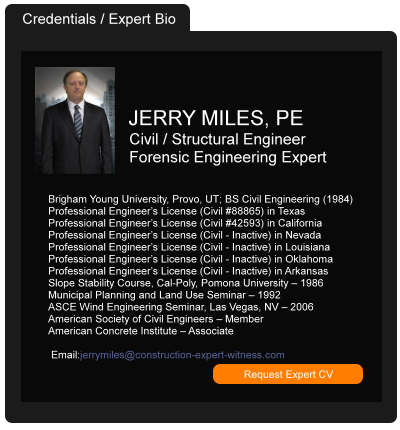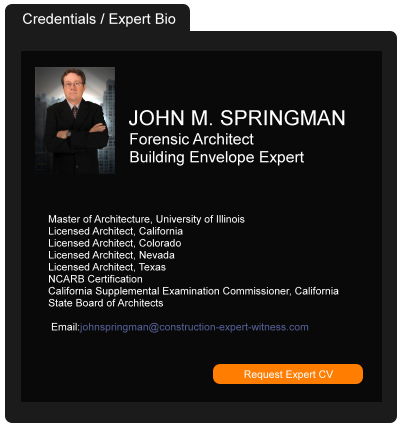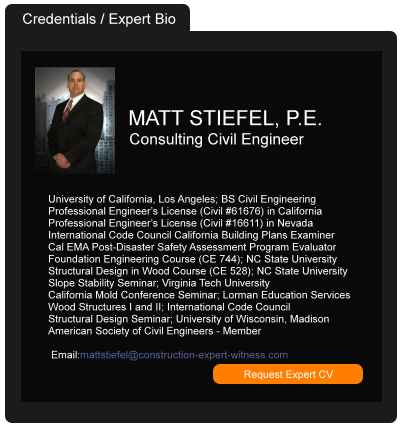Building the Secondary Market for Reclaimed Building Materials
August 30, 2021 —
Christopher G. Hill - Construction Law MusingsFor this week’s guest post Friday, Musings welcomes Mark Rabkin of Deconstruction Management, Inc., the first, dedicated, for-profit deconstruction management firm in the country. Based in Northeast Ohio, it through all stages of building removal from property acquisition to deconstruction to recycling and architectural salvage.
With 10 years of professional experience as an independent risk advisor focusing on sustainable real estate and development, Mark counsels his clients on effective strategies to reduce hazards and mitigate losses. Mark oversees the marketing and administrative functions of Deconstruction Management, Inc. and is responsible for managing the architectural salvage and the upcycled material reuse and resale side of the business.
Mark is a leader in the advocacy of sustainable building strategies both locally and nationally. Mark serves as the volunteer Director of Advocacy for the Northeast Ohio Chapter of the United States Green Building Council. He is also an active contributor on many of the chapter’s strategic implementation teams. Mark is a member of Entrepreneurs for Sustainability, the Council of Smaller Enterprises’ Sustainability Task Force and is an active participant in the Sustainable Cleveland 2019 Initiative.
Read the court decisionRead the full story...Reprinted courtesy of
The Law Office of Christopher G. HillMr. Hill may be contacted at
chrisghill@constructionlawva.com
Toolbox Talk Series Recap – Best Practices for Productive Rule 26(f) Conferences on Discovery Plans
May 13, 2024 —
Douglas J. Mackin - The Dispute ResolverIn the April 4, 2024 edition of Division 1’s Toolbox Talk Series,
Julian Ackert and
Steve Swart presented on how to prepare for and structure Rule 26(f) conferences to be more effective. While Swart and Ackert focused on the requirements of Federal Rule of Civil Procedure 26(f) regarding the requisite conference of the parties prior to a scheduling conference or scheduling order, it is worth noting that many states have substantially similar requirements.
Rule 26(f) requires the parties to (i) discuss the nature and basis of their claims or defense; (ii) make or arrange for mandatory disclosures pursuant to Rule 26(a)(1); (iii) discuss issues about preserving discoverable information (including Electronically Stored Information – “ESI”); and (iv) develop a proposed discovery plan. Swart and Ackert’s presentation focused on the preservation of ESI and the proposed discovery plan.
Read the court decisionRead the full story...Reprinted courtesy of
Douglas J. Mackin, Cozen O’ConnorMr. Mackin may be contacted at
dmackin@cozen.com
Valerie A. Moore and Christopher Kendrick are JD Supra’s 2020 Readers’ Choice Award Recipients
July 13, 2020 —
Christopher Kendrick & Valerie A. Moore – Haight Brown & Bonesteel LLPHaight is thrilled to announce that Valerie A. Moore and Christopher Kendrick are receiving JD Supra’s 2020 Readers’ Choice Awards. The award acknowledges top authors and firms for their thought leadership in key topics during 2019. This is Valerie’s third JD Supra Readers’ Choice Award and Christopher’s second.
Specifically, Valerie and Chris receive the following recognition for the level of visibility and engagement our firm and authors attained in 2019, from among thousands of others, with readers of these topics:
Valerie Moore – a top author in Insurance
Christopher Kendrick – a top author in Insurance
JD Supra’s Readers Choice Awards
The Readers’ Choice Awards recognize top authors and firms who were read by C-suite executives, in-house counsel, media and other professionals across the JD Supra platform during 2019.
Reprinted courtesy of
Christopher Kendrick, Haight Brown & Bonesteel LLP and
Valerie A. Moore, Haight Brown & Bonesteel LLP
Mr. Kendrick may be contacted at ckendrick@hbblaw.com
Ms. Moore may be contacted at vmoore@hbblaw.com
Read the court decisionRead the full story...Reprinted courtesy of
Demonstrating A Fraudulent Inducement Claim Or Defense
May 18, 2020 —
David Adelstein - Florida Construction Legal UpdatesIn a recent case, Florida’s Fourth District Court of Appeal reversed a trial court’s denial of a motion for a temporary injunction sought by an employer due to an independent contractor’s violation of a non-compete and non-solicitation provision in an employment / independent contractor agreement (“employment agreement”). You can find more on this case and the enforcement of the non-compete and non-solicitation clause
here.
A worthy discussion in this case centers on the independent contractor’s fraudulent inducement defense. Specifically, the independent contractor, as a defense to the injunction, claimed that he was fraudulently induced into entering into the employment agreement because the employer promised he would make a certain amount of money and he would work predominantly in one geographic location. The employment agreement contained NO such representations. Instead, the employment agreement contained a fee and services schedule and the independent contractor would be compensated based on that schedule. It stated nothing as to the independent contractor only having to work, or predominantly working, in one geographic location, or that the independent contractor would be guaranteed “X” amount of money working in that location. Why is this important?
Read the court decisionRead the full story...Reprinted courtesy of
David Adelstein, Kirwin Norris, P.A.Mr. Adelstein may be contacted at
dma@kirwinnorris.com
Insurer's In-House Counsel's Involvement in Coverage Decision Opens Door to Discovery
January 11, 2021 —
Tred R. Eyerly - Insurance Law HawaiiThe Mississippi Supreme Court held that the insurer must produce written communications from and make available for deposition the in-house counsel who orchestrated the denial of coverage. Travelers Pro. Cas. Co. of Am. v. 100 Renaissance, LLC, 2020 Miss. LEXIS 409 (Miss. Oct. 29, 2020).
An unidentified driver struck a flagpole owned by the insured Renaissance, causing $2,134 in damages. Renaissance filed a claim with Travelers for uninsured-motorist coverage. The Travelers' claims handler, Charlene Duncan, determined there was no coverage because the flagpole was not a covered auto. Before corresponding with the insured, Duncan sought legal advice from Travelers' in-house counsel, Jim Harris.
Renaissance sued Travelers for coverage and bad faith. Renaissance then took Duncan's deposition and asked that she explain both the denial letter and the reasons Travelers denied the claim. Duncan repeatedly said she did not know the basis of the denial and that she had consulted with Harris.
Read the court decisionRead the full story...Reprinted courtesy of
Tred R. Eyerly, Damon Key Leong Kupchak HastertMr. Eyerly may be contacted at
te@hawaiilawyer.com
Burlingame Construction Defect Case Heading to Trial
December 30, 2013 —
CDJ STAFFA condominium association in the Aspen, Colorado area will likely go to trial over its claims of construction defects, reports Aspen Daily News Online. According to the suit, siding and trim were improperly manufactured and installed. The homeowners engaged experts to determine the appropriate remedy, and then sought bids from contractors. Shaw Construction, which built the condos, responded with a counteroffer. Chris Rhody, the lawyer for the homeowners, said there was “a big difference” between the association’s request and the builder’s counteroffer.
According to Mr. Rhody, settlement is still possible, but seems unlikely. A date for the trial is yet to be set.
Read the court decisionRead the full story...Reprinted courtesy of
New York Court Narrowly Interprets “Expected or Intended Injury” Exclusion in Win for Policyholder
May 16, 2022 —
Michael S. Levine, Kevin V. Small & Joseph T. Niczky - Hunton Insurance Recovery BlogNL Industries recently prevailed against its commercial general liability insurers in the New York Appellate Division in a noteworthy case regarding the meaning of “expected or intended” injury and the meaning of “damages” in a liability insurance policy. In Certain Underwriters at Lloyd’s, London v. NL Industries, Inc., No. 2021-00241, 2022 WL 867910 (N.Y. App. Div. Mar. 24, 2022) (“NL Indus. II”), the Appellate Division held that exclusions for expected or intended injury required a finding that NL actually expected or intended the resulting harm; not merely have knowledge of an increased risk of harm. In addition, the court held that the funding of an abatement fund designed to prevent future harm amounted to “damages” in the context of a liability policy because the fund has a compensatory effect. NL Industries II is a reminder to insurers and policyholders alike that coverage is construed liberally and exclusions are construed narrowly towards maximizing coverage.
Reprinted courtesy of
Michael S. Levine, Hunton Andrews Kurth,
Kevin V. Small, Hunton Andrews Kurth and
Joseph T. Niczky, Hunton Andrews Kurth
Mr. Levine may be contacted at mlevine@HuntonAK.com
Mr. Small may be contacted at ksmall@HuntonAK.com
Mr. Niczky may be contacted at jniczky@HuntonAK.com
Read the court decisionRead the full story...Reprinted courtesy of
Are Construction Defect Laws a Factor in Millennials Home Buying Decisions?
March 12, 2015 —
Beverley BevenFlorez-CDJ STAFFKimberly A. O’Hagan of Otten Johnson Robinson Neff + Ragonnetti PC discussed Millennials in Denver, Colorado, and how their desire to buy may cause them to leave the area due to a lack of affordable housing.
O’Hagan describes various possible reasons for the lack of affordable housing: “Some cite the inability to qualify for financing and low demand as the reasons for the decreased number of condominium projects. Others, including Denver’s Mayor Hancock, credit the chill on condominium construction to Colorado’s construction defect laws, which they say have resulted in increased insurance costs that make condominium development economically infeasible.”
Read the court decisionRead the full story...Reprinted courtesy of


































































